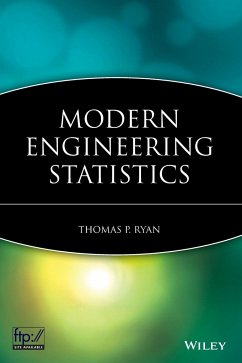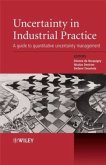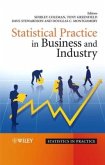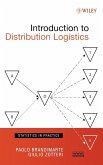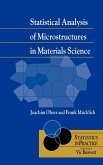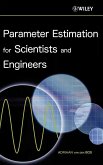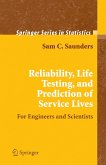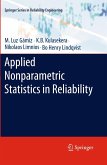An introductory perspective on statistical applications in the field of engineering
Modern Engineering Statistics presents state-of-the-art statistical methodology germane to engineering applications. With a nice blend of methodology and applications, this book provides and carefully explains the concepts necessary for students to fully grasp and appreciate contemporary statistical techniques in the context of engineering.
With almost thirty years of teaching experience, many of which were spent teaching engineering statistics courses, the author has successfully developed a book that displays modern statistical techniques and provides effective tools for student use. This book features:
_
Examples demonstrating the use of statistical thinking and methodology for practicing engineers
_
A large number of chapter exercises that provide the opportunity for readers to solve engineering-related problems, often using real data sets
_
Clear illustrations of the relationship between hypothesis tests and confidence intervals
_
Extensive use of Minitab(r) and JMP(r) to illustrate statistical analyses
The book is written in an engaging style that interconnects and builds on discussions, examples, and methods as readers progress from chapter to chapter. The assumptions on which the methodology is based are stated and tested in applications. Each chapter concludes with a summary highlighting the key points that are needed in order to advance in the text, as well as a list of references for further reading. Certain chapters that contain more than a few methods also provide end-of-chapter guidelines on the proper selection and use of those methods. Bridging the gap between statistics education and real-world applications, Modern Engineering Statistics is ideal for either a one- or two-semester course in engineering statistics.
Hinweis: Dieser Artikel kann nur an eine deutsche Lieferadresse ausgeliefert werden.
Modern Engineering Statistics presents state-of-the-art statistical methodology germane to engineering applications. With a nice blend of methodology and applications, this book provides and carefully explains the concepts necessary for students to fully grasp and appreciate contemporary statistical techniques in the context of engineering.
With almost thirty years of teaching experience, many of which were spent teaching engineering statistics courses, the author has successfully developed a book that displays modern statistical techniques and provides effective tools for student use. This book features:
_
Examples demonstrating the use of statistical thinking and methodology for practicing engineers
_
A large number of chapter exercises that provide the opportunity for readers to solve engineering-related problems, often using real data sets
_
Clear illustrations of the relationship between hypothesis tests and confidence intervals
_
Extensive use of Minitab(r) and JMP(r) to illustrate statistical analyses
The book is written in an engaging style that interconnects and builds on discussions, examples, and methods as readers progress from chapter to chapter. The assumptions on which the methodology is based are stated and tested in applications. Each chapter concludes with a summary highlighting the key points that are needed in order to advance in the text, as well as a list of references for further reading. Certain chapters that contain more than a few methods also provide end-of-chapter guidelines on the proper selection and use of those methods. Bridging the gap between statistics education and real-world applications, Modern Engineering Statistics is ideal for either a one- or two-semester course in engineering statistics.
Hinweis: Dieser Artikel kann nur an eine deutsche Lieferadresse ausgeliefert werden.
"...the author's wealth of knowledge is immediately evident...an excellent expose concerning the actual statistical planning or 'design' of experiments." (Biometrics, September 2007)
"Overall this is an excellent book, which defines a broader mandate than many of its competing texts. By providing, clear, understandable discussion of the basics of statistics through to more advanced methods commonly used by engineers, this book is an essential reference for practitioners, and an ideal text for a two semester course introducing engineers to the power and utility of statistics." (The American Statistician, August 2008)
"In this book on modern engineering statistics, Ryan does an excellent job of providing the appropriate statistical concepts and tools using engineering resources.... Highly recommended. Lower- and upper-division undergraduates" (CHOICE, April 2008)
"This self-contained volume motivates an appreciation of statistical techniques within the context of engineering; many datasets that are used in the chapters and exercises are from engineering sources. This book is ideal for either a one- or two-semester course in engineering statistics." (Computing Reviews, April 2008)
"In this book on modern engineering statistics, Ryan does an excellent job of providing the appropriate statistical concepts and tools using engineering resources.... Highly recommended. Lower- and upper-division undergraduates" (CHOICE, April 2008)
"This self-contained volume motivates an appreciation of statistical techniques within the context of engineering; many datasets that are used in the chapters and exercises are from engineering sources. This book is ideal for either a one- or two-semester course in engineering statistics." (Computing Reviews, April 2008)

